Plants as Friends, Foes, Medicines and Kin: A panel-based exploration of Indigenous relationships with the botanical world
In this moderated discussion, panelists with diverse backgrounds and perspectives were invited to share the ways that they relate to plants and understand their roles in the ecosystems they inhabit. Terms explored included native species and invasive species, weeds and medicines as well as topics such as kinship, naturalization and the relationship between cultural restoration and ecological restoration.
Featuring:
- Carolynne Crawley; Founder, Msit No’kmaq
- Crystal Melin; Founder, Green Thumbelina
- Joseph Pitawanakwat; Plant Medicine Educator, Creator’s Garden
- Christine Luckasavitch, Executive Consultant, Waaseyaa Consulting
Panel facilitated by Junaid Khan
Speaker Bios:
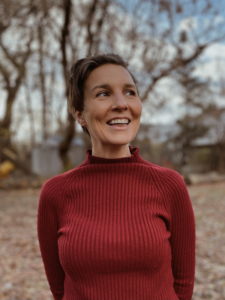 |
Crystal Melin (she/her) identifies as a settler with Haudenosaunee ancestry, a mother, native plant propagator, and Earth Worker. Crystal founded the microbusiness, Green Thumbelina, to build connections between nature and children. Twitter: @GreenThumbelin2 |
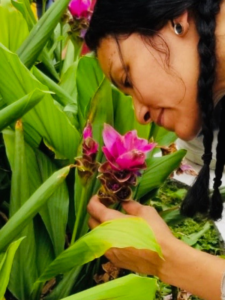 |
Carolynne Crawley, founder of Msit No’kmaq, is Mi’kmaw and also has Black and Irish ancestry. She is from Mi’kma’ki territory, also known today as Nova Scotia. But Tkaronto has been her home since a young child. She is dedicated to social and environmental justice. Carolynne is passionate about reconnecting people with the land, waters, and all beings as there is no separation between us.
Carolynne is the Founder of Turtle Protectors, an Indigenous led initiative to advocate, protect, and support turtle relatives, their kin, and waters in and around the lands also known as High Park. She is also a certified Forest Therapy Guide, a Kairos Blanket Exercise Facilitator, a Holistic Nutritionist, Storyteller, and a member of the Indigenous Land Stewardship Circle. She has worked with food security organizations for twelve years working with Indigenous communities and building school food gardens. She has also worked in the role of a Child and Youth Worker for two decades. |
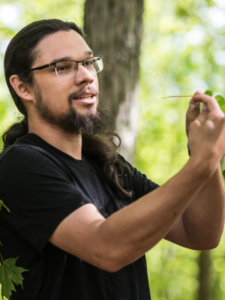 |
Joe Pitawanakwat is Ojibway from Wikwemikong Unceded Indian Territory on Manitoulin Island, Ontario. He is an educator who specializes in plant-based medicine. He is the Founder and Director of Creators Garden, a year-round, Indigenous outdoor education-based business.
He focuses on plant identification, sustainable harvesting, and teaching every one of the linguistic, historical, cultural, edible, ecological and medicinal significance of plants through experience. |
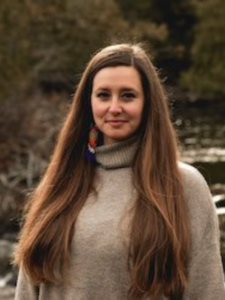 |
Christine Luckasavitch is Madaoueskarini Algonquin and mixed settler, living in her ancestral territory at the headwaters of the Madawaska River. Her work is centered around creating spaces for Indigenous peoples to share their knowledges, both in physical and digital spaces, and encouraging the re-emergence of ancestral kinship ties. She is the owner of Waaseyaa Consulting and Waaseyaa Cultural Tours, two small businesses dedicated to reviving and celebrating Indigenous ancestral knowledge and culture-based practices through educational opportunities. She is the co-owner of Algonquin Motors, a woman-led motorcycle clothing company that celebrates the land now also known as Algonquin Park. Christine is a graduate of Acadia University, and she is currently completing her Masters Degree at Trent University, her thesis offering a critique of Algonquin Park as a wilderness space and the continued impacts on her Algonquin community. She is also working on her first book, centred around the history of Madaoueskarini Algonquins. |
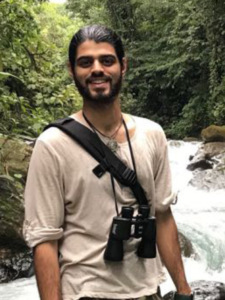 |
Junaid Khan (who will be facilitating the panel) is an ecologist at Pollinator Partnership Canada. With a focus on decolonizing approaches in conservation practice, Junaid aims to restart ecological work from the ground-up, building partnerships and collaborations with communities of colour and Indigenous peoples in Ontario around land sovereignty and food security. He was the Environmentalist in Residence at the Toronto Public Library in 2021 and co-hosts the uplifting social media account @happiestnature |
This event is offered in collaboration with WWF-Canada.
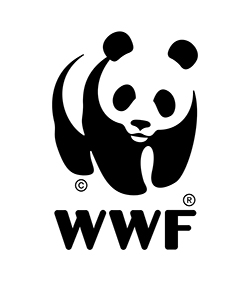
WWF® and ©1986 Panda Symbol are owned by WWF. All rights reserved
Categories
Tags
Recent Initiatives
Volunteering
 NANPS is a volunteer-operated organization. Virtually everything we achieve is through the efforts of volunteers. The more assistance offered by our members, the more we can accomplish together. If you have some time to give...even just occasionally...you can help. Read More...
NANPS is a volunteer-operated organization. Virtually everything we achieve is through the efforts of volunteers. The more assistance offered by our members, the more we can accomplish together. If you have some time to give...even just occasionally...you can help. Read More...NANPS Seed Exchange
 The 2023 - 2024 Seedex list is available for viewing at Native Plant Seed Exchange!
The NANPS Seed Exchange is open to all members across the continent and relies on your participation. If you are not yet a member, you may join online now or include your membership form with your seed request....Read More
The 2023 - 2024 Seedex list is available for viewing at Native Plant Seed Exchange!
The NANPS Seed Exchange is open to all members across the continent and relies on your participation. If you are not yet a member, you may join online now or include your membership form with your seed request....Read More








